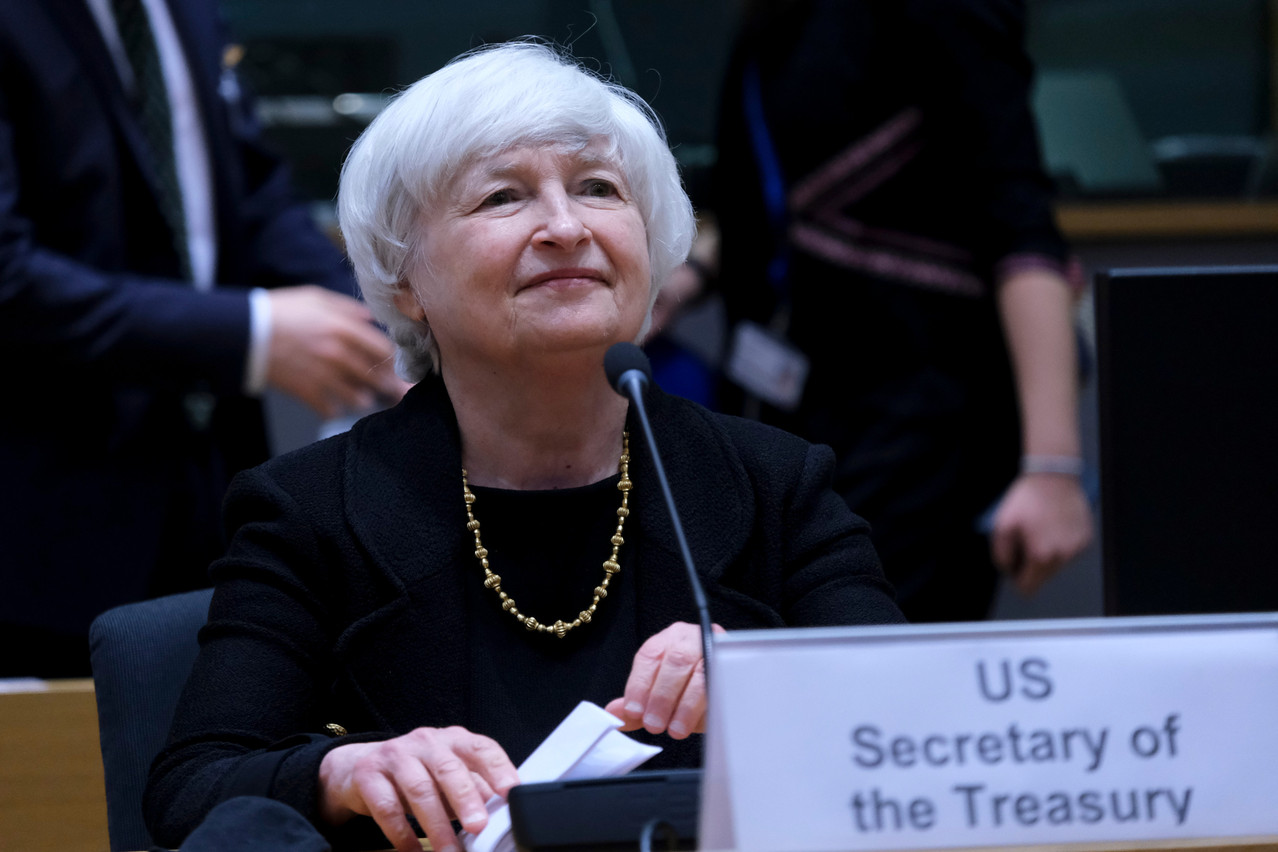For 20 years, the European Commission has organised its annual Brussels Economic Forum (BEF), bringing together policymakers, academics and representatives of business and civil society to discuss the challenges facing the European economy. The 2022 edition of the BEF, on 17 May, opened with a lecture by US treasury secretary Yellen.
In her opening speech, Yellen emphasised the transatlantic partnership as a way of dealing with economic and geostrategic uncertainties. She said: “While so much is uncertain, one thing we have in our power is the ability to deliver real and effective cooperation to secure a more prosperous and sustainable world for the next generation on both sides of the Atlantic.”
Yellen breaks down the cooperation into five main economic themes.
Russia and Ukraine
As an illustration of the cooperation between Europe and the United States, the treasury secretary did not hesitate to recall the need to put an end to “Vladimir Putin's brutal war against Ukraine and its people”. The United States, Europe and their partners, “which account for well over half of the world's economy”, through their sanctions, “have made it possible to impose significant costs and limitations on Russia”. The aim being to degrade Russia's ability to prosecute the war and “project its power in the years to come.”
Stressing that these retaliatory measures are not motivated by foreign policy or economic objectives, the former US Federal Reserve (Fed) chairwoman clarifies that "we are making sure that Russia can't pit some of us against others". Yellen also makes no secret of the Biden administration's strategy "to push Russia further into economic, financial and strategic isolation" if Russia continues the war in Ukraine. "The Kremlin will be forced to choose between propping up its economy and funding Putin's continued brutal war."
While on 29 April US President Joe Biden called on the US Congress to provide a $33bn financial windfall to Ukraine, Yellen is encouraging Europe to continue its efforts to fund Kiev.
Energy security and climate
“I commend European leaders for their proposal to phase out all Russian energy supplies within six months,” she said, explaining that “Russia is using energy as a weapon to deploy against those who stand against its aggression”.
With Europe having to turn to the US and other partners, Yellen was aware that “we will probably see an increase in coal and other fossil fuels”. This does not stop her from stressing the importance of investing in renewables: “The longer the current disruption lasts—the more aggressively we say no to Russian oil—the more remunerative it will naturally become to switch to renewables.”
China, rare earths and semiconductors
As energy supply is not the only strategic sovereignty challenge, the treasury secretary highlighted that “we have long accepted a significant dependence on China for the supply of rare earths.”
As rare earths are vital inputs for many industries (aviation, vehicle production, battery manufacture, renewable energy systems), Yellen recalls that “China is responsible for 60 percent of rare earth mining and nearly 40 percent of reserve”.
In addition to rare earths, “China is building a consequential market share in certain technology products and seeks a dominant position in the manufacture and use of semiconductors,” said Yellen. She also believes that “employed a variety of unfair trade practices in its efforts to achieve this position". In response, secretary Yellen called on the EU to work more closely with their allies on the other side of the Atlantic: “China is more likely to respond favourably if it cannot play one of us off against another.”
The international tax agreement
Another example of transatlantic cooperation, in Yellen's eyes, is the international tax agreement that 137 countries joined in October 2021. "This agreement simply could not have happened without close coordination between the United States and Europe.”
While Pillar 2 of this agreement establishes a global tax rate of at least 15% on multinational companies, it is especially Pillar 1 that seems to be the most challenging, to hear Yellen: “Pillar 1 of this deal, focused on the taxation of digital services, puts an end to trade tensions between the EU and the United States that threaten our companies with multiple layers of taxation and our consumers with rising costs from tariffs.”
The global health architecture in the face of future pandemics
Finally, Yellen mentions the covid-19 pandemic which “millions of lives, trillions of dollars in lost economic output, and severely impacted health systems around the world”. It “revealed how unprepared we were”, she said. She therefore urges “global health architecture to enhance our resilience to future pandemics.”
To this end, she says that G20 countries and other partners have committed to "support a Financial Intermediary Fund as a flexible mechanism to help fill the gaps in health system investments at the country, regional, and global level”. In this regard, “European support in launching this funding mechanism this year.”
This story was first published in French on . It has been translated and edited for Delano.
